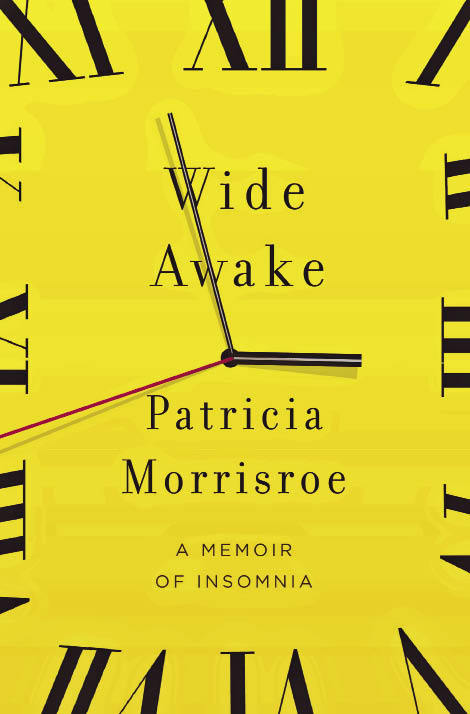I’ve only ever read one other book about sleep — the brilliant Counting Sheep, by Paul Martin, which collates and describes everything we know about sleep in a way that is succinct and peerless.
I’ve only ever read one other book about sleep — the brilliant Counting Sheep, by Paul Martin, which collates and describes everything we know about sleep in a way that is succinct and peerless. So this book is up against stiff opposition. Patricia Morrisroe, who has trouble sleeping, examines the science of sleep in the course of trying to find a cure. She goes to doctor after doctor. She tries everything — this drug and that drug, tapes, meditation, different mattresses, sleeping on blocks of ice, moving from Manhattan to the country. In the end, thank God, something works. I wonder if you can guess what it is.
At first, I had a bit of a problem with this book, and I kept wondering what it was. It’s perfectly well written, so it wasn’t that. Morrisroe is a professional journalist, and also the acclaimed biographer of Robert Mapplethorpe, the photographer. But every time I picked this book up, I would read a few pages, and then stop, and put the book down, and move on to something else. Why? Morrisroe describes her symptoms well, and she gives good accounts of her visits to doctors, her early sleeping problems, and so on. She manages to splice memoir and science in a way that appears seamless.
And then I realised what my problem was. Morrisroe is very good at describing the state of insomnia — a noxious mix of drowsiness and anxiety, of torpor and tension. I kept waking up in the morning, feeling not too bad, and plunging into this book, and then feeling exhausted. Sleep deprivation, it turns out, is a very hard thing to write about. It’s not exciting, and it doesn’t carry with it a sense of history or global importance. It does not feel like a matter of life or death. There are few comic possibilities. In fact, reading about sleep deprivation makes you think that you, yourself, are deprived of sleep.
So I kept putting the book down and reading about other things — chess, and crack, and hit men, and Jewishness. I read histories of marketing and financial instruments. And then I would pick up this book, and admire it, and put it down again, feeling drowsy and anxious.
I really felt sorry for Morrisroe. She makes not being able to sleep seem such an awful curse. And more and more of us — not including me, I must say — are sufferers. Paul Martin, whose book is crisp and scientific, gives the impression that the 24-hour society is to blame. Frank Lipman, whose book Spent is not exactly about sleep, but exhaustion, comes to more or less the same conclusion. In the end, that’s what you take away from this book. We live in a world that is busy, busy, busy. That’s not the world we were designed for. Our sleep suffers.
And what happens then? Bad stuff — drivers crash into things, commuters get tetchy, your health declines, you get fat. Yes, that seems to be true — tired people crave carbohydrates, and stuff their faces. And what are we doing to combat this sleep-deprived world we are creating? Well, we’re not doing what we should be doing, by and large. We’re not calming down and getting to bed earlier. We’re going nuts and getting to bed later, with television sets in our bedrooms and alarm clocks inches from our heads. Some of us — Americans so far, but watch out — are eating caffeinated food, such as Morning Spark porridge, NRG Phoenix Fury crisps and Buzz doughnuts.
So what should you do, if you can’t get to sleep? My impressions, from reading this book: don’t take sleeping pills. They don’t always work, and they can be harmful. Don’t worry about it too much. Anxiety can feed into the problem. Do look for a new mattress, but only if there’s something actively wrong with your old one. There is one exception: the top Hastens mattress, made with the finest horsehair, among other things, which costs more than $20,000. But if you can’t afford that, don’t worry. Morrisroe doesn’t rave about memory foam as a mattress material. (But I think it’s great: try it.) Also, don’t rely on hypnotism, and don’t sleep on blocks of ice. That probably won’t cure your insomnia.
I came to like this book more and more. Morrisroe’s eventual cure for her insomnia is a combination of two things: meditation and moving to the country. At first, she worries about acorns falling on her roof, and noisy geese. But then she finds the secret of good sleep. It is to stop fretting, like a person in Manhattan, and to relax. Accept the acorns. Accept the geese.





Comments